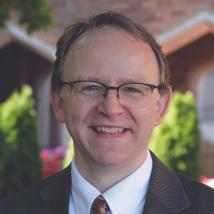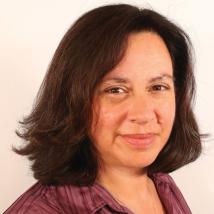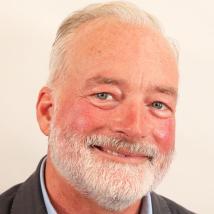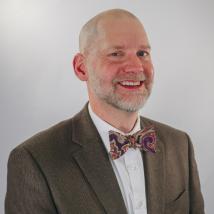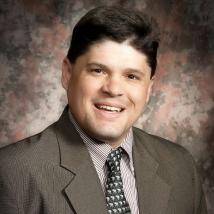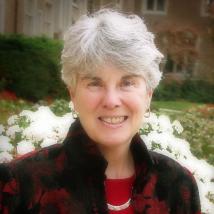
Religious Studies
The effects of religion are all around us. Spend just a few minutes checking global news, and you will see the impact of religion on culture in every aspect of life, even for those who do not consider themselves religious. Religion can be a mindset, a practice, an institution, or an orientation of the heart. Understanding the practices, beliefs, and structures of religion allows us to connect with others and work through complex issues in our social, professional, or political lives. Mercyhurst has an outstanding faculty with specialties in scriptural studies, history and sociology of religion, comparative study, theology, and ethics. We offer programs in Religious Studies, Religion and Society, Catholic Studies, and Ethics.
The academic study of religion is a foundation for connecting with, understanding, and accepting people, especially those with different views, beliefs, and experiences from our own. The curriculum in Religious Studies develops and hones skills in communication, argumentation, research, social justice, cultural awareness and competency, creative problem-solving, and critical thinking. Students will not only learn about foundations and history but also develop their ability to analyze current trends where religion and society intersect. Whether you are interested in working in a non-profit, politics, national security, law enforcement, public health, or medicine, these skills will help you. In keeping with the university's core values, we are committed to fostering awareness of regional, national, and global issues of justice that emerge within religious contexts and society.
Fast Facts
- Religious Studies students regularly present original research at academic conferences throughout the region.
- Students have the opportunity to join Theta Alpha Kappa, the National Honor Society for the Study of Religion and Theology.
- Religious Studies is an excellent complement to other majors and is often encouraged in professional fields including medicine, social work, law enforcement, and national security.
- Our graduates have pursued advanced degrees at institutions such as Yale University, the University of Chicago, and Emory University.
- All Mercyhurst full-time Religious Studies faculty hold Ph.D.s in religious studies and have extensive records of publication and public engagement in the field.
- The Department of Religious Studies houses both the William C. Sennett Institute for Mercy and Catholic Studies and the Evelyn Lincoln Institute for Ethics and Society.
Program Overview
Through diverse course offerings, the Department of Religious Studies cultivates understanding of the religious experience of human kind. We provide students with a breadth of knowledge in the field and essential skills for full participation in a globalized world. Students will cultivate reflective and critical thinking skills through the study of religion's broad impact on human life and society.
The Religious Studies major requires a minimum of 10 courses, including two courses in each of the following areas:
- Tradition, texts, and history
- Pluralism, comparison, and society
- Theology, philosophy, and ethics
Learning Outcomes
- Identify and define tools of the academic study of religion
- Recognize diversity within religious traditions
- Compare and contrast religious traditions
- Apply a variety of methodological approaches to the study of religion
- Two courses from each of the three categories in the core RLST major.
- One from each category in the Religion and Society minor (because of overlap with the major this will mean additional courses in the RLST core categories).
- The RLST Senior Seminar.
- Three electives from the Religious Studies general curriculum or religion and society curriculum.
- At least 2 courses must be 300 level or higher.
- An approved one-credit service learning class.
The Religion and Society concentration provides a deeper analysis of the mutual impact of religion on contemporary social and political issues and their reciprocal impact or religious expression. Students in this program are encouraged to study a variety of religious traditions and issues that impact personal, professional, and public life.
The Religion and Society Concentration includes:
- Catholic Studies: These courses specifically designed to deepen understanding of the Catholic tradition, both past and present. All students seeking the minor must take Exploring Catholicism (CST 100) and one other course from this category.
- Religious Studies: One designated Religious Studies course.
- Interdisciplinary Studies: One designated course from an approved list.
- Electives: Students may choose two other courses from any of the three categories.
- Introduction to Ethics (PHIL 190).
- Two courses from a selection of second-level ethics courses offered by Philosophy, Religious Studies, Catholic Studies, or Anthropology.
- Three elective courses from an approved list, which come from a variety of departments.
- All students must take a minimum of one 300 or 400-level course.
- There is an additional requirement of an internship through ELIES that will be either zero or one credit, depending on the needs of the student. Those internships will need the approval of the ELIES director.
- What is Religion? (RLST 100), or Sacred Texts (RLST 110), or World Religions (RLST 115).
- Three designated religion and society courses; Choose one from each category:
- Global Civil Society
- Global Awareness
- Global Issues
- One elective additional course from one of the three religion and society categories.
- RLST senior seminar is recommended but not required and can be the elective.
- At least one course must be 300-level or higher.
- There is an additional service learning component that will be either zero or one credit, depending on the needs of the student. The service learning component will require the approval of the Chair of Religious Studies.
- One course in each of the curricular categories:
Tradition, Texts, and History
Pluralism, Comparison, and Society
Theology, Philosophy, and Ethics - Three RLST electives
- Senior Seminar (RLST 480) is recommended but not required as one of these electives
- One of the six courses must be 300 level or above (including the senior seminar)
The Catholic Studies Minor is composed of six courses (18 credits) chosen from the following three areas:
Students seeking the Ethics minor will be required to take six courses (18 credits) including:
The religion and society minor is tailored to the special needs of students in pre-professional programs, giving them insight into the role religion plays in daily activities and decision-making. The focus of this minor is the intersection of religion and contemporary social life from traditional religions to cults. Students will also explore special topics from death and dying to religion and violence. Requirements include five RLST courses (15 credits) including:
A religious studies minor requires a minimum of six courses (18 credits) in RLST including the following:
The Religious Studies Department at Mercyhurst University has the Alpha Kappa Lambda chapter of Theta Alpha Kappa, a national Religious Studies and Theology honor society associated with the American Academy of Religion.
Students inducted into this society are leaders in the department - meeting with guest speakers and participating in special events for the department. Because the University has a chapter, all University students have the opportunity to apply for the Clark Award through Theta Alpha Kappa for an undergraduate paper and submit papers in Religious Studies or Theology to the Theta Alpha Kappa Journal.
Mercyhurst University understands the academic study of religion as an important discipline within the overall humanities curriculum. Religious experience and inquiry are taken seriously in the Mercy educational tradition as integral to the human quest for meaning and value. The Religious Studies Department respects the religious freedom of its students, who are encouraged to think creatively and critically about religious and theological questions. Mercyhurst affirms its Roman Catholic heritage and identity while honoring and studying other religious traditions. Although emphasis is given to Catholic thought and praxis, the spirit of ecumenical and interfaith openness is a characteristic of the Department and the University itself. Central to studies of all religious traditions are critical inquiries into justice, peace, human freedom, and community.
Verna Ehret, Ph.D.
Chair, Department of Religious Studies and Philosophy
Office: Preston 204
Meet the Faculty
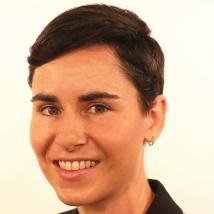
Elizabeth Pyne
Program Director, Catholic Studies; Interim Director, Sustainability Studies Program; Assistant Professor



